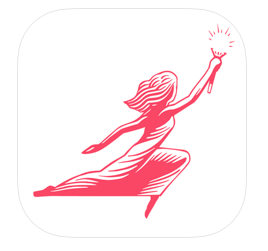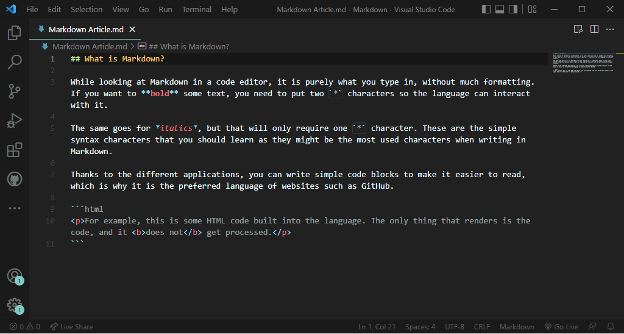By Lainey Hardiman
Four years ago, I never imagine I would graduate with a degree in English, let alone anything to do with writing. I wanted to be a high school math teacher and inspire students to love math. Writing wasn’t supposed to be my thing—until I found Professional Writing.
Like you’ll read throughout this magazine, someone with a Professional Writing degree can achieve more than just writing. Students can choose a career in digital design, coding, social media, marketing, publishing, editing, etc.—there isn’t a limit to what you can do with a degree like this.

This semester, I interned with the non-profit organization GirlSpring, an online magazine curated by teen girls, for teen girls. I wasn’t just writing copy; it was an editorial internship where I read, edited, and published articles into the organization’s online magazine.
But it wasn’t about an individual article. When editing each one, I constantly referenced the overall design of the magazine: the colors, the layout, the headings, and the images. It was more about the overall; each one had to be cohesive with the whole magazine.
Developing Digital Documents and Digital Publishing are two professional writing courses offered at UAB that I took and loved. Developing Digital Documents introduces students to technologies like Adobe’s Illustrator, InDesign, and Photoshop. Each heavily used in the design world and very helpful for any college student.
Digital Publishing introduces students more to the digital world and provides a basis for how websites are built and designed. It introduces students to Adobe Dreamweaver, HTML, CSS, and WordPress. Coding is a big part of this course, and it is by far my favorite thing I have learned.
In each class, there are specific rules for everything. We stress contrast, repetition, alignment, and proximity, or how we like to call it, “CRAP.” Of course, my mathematical brain loved the rules and how each perfectly formulated line of code or combination of design elements and text joined to create a seamless, overall design. All these choices combine to help viewers engage with and read the page or document we design and write.
At GirlSpring, I utilized CRAP every time I edited an article; I even coded a few links in the captions of images. My Professional Writing classes taught me how to write concisely, and I am constantly editing for clear and concise language in articles to ease readability. Subheadings have become my best friend over the semester because of how much they improve readability and overall flow of the document.
I couldn’t tell you how many times I would preview one article and then change bullet points or numbered lists just to allow for easier eye movement down the page. Just like we learned in the classes, I think about how a viewer would experience each article. How would they receive the information? Would it be engaging enough to keep them on the page and keep reading?
According to those questions, the decisions I make about the text and design stem from Developing Digital Documents and Digital Publishing. Without these two classes I wouldn’t have started my internship with a leg-up in navigating and utilizing WordPress or recognized how valuable simple design changes are to a website or magazine.
The knowledge I had regarding the digital space before these classes was terrifyingly close to nothing. I gained the confidence I needed to succeed in my digital and remote internship from my experience in both Developing Digital Documents and Digital Publishing. Without them, I don’t know what I would’ve done.









